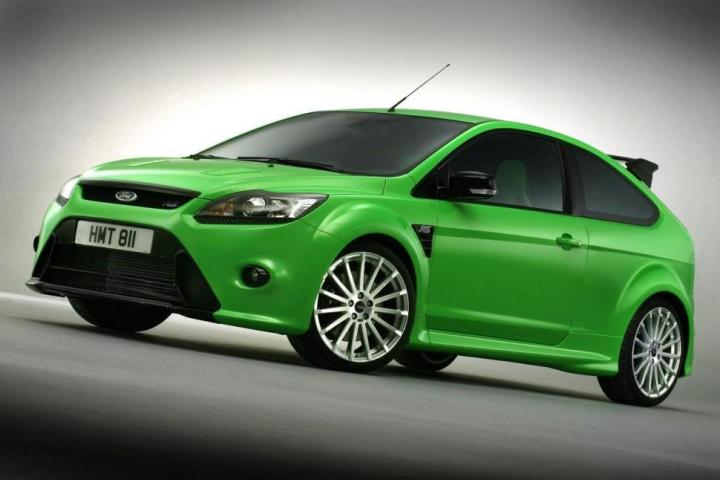
American car buyers were thrilled when Ford announced its GTI-fighting Focus ST in 2010, and it’s easy to see why.
It’s powered by a 252-horsepower turbo four-cylinder, with aggressive, enthusiastic styling, and carrying a reasonable $24,155 price tag. Europeans had been romping about in “hot hatches” for years, so when Ford brought another one here, it went over pretty well.
But if you give a mouse a cookie … he’s going to want 350 horsepower and an electronic differential. Or something like that.
According to an Autoexpress report, Ford has plans to release the even-hotter Focus RS to U.S. markets in 2016, which could be given a 350-hp version of the 2.3-liter EcoBoost from the new Mustang.
Barb Samardzich, Chief Operating Officer for Ford of Europe, couldn’t confirm any details, but expressed that there is a “strong desire” for the Focus RS in America.
Another Ford spokesman said, “We have a rich heritage of RS cars, and we’re not about to let any competitors overtake us in that respect. You can rest assured that Martin (Smith, Ford of Europe director of design) and his team are fully focused on the future of our performance strategy.”
An immediate concern for any front-wheel-drive car with that much power is torque steer, but Ford has plans to counteract that. An electronic front differential will deliver all 350 horses to the pavement, maximizing traction in all conditions.
Ford’s crafty RevoKnuckle suspension design, itself a variation of the MacPherson layout, presumably uses some sort of witchcraft and magic to reduce steering feedback. It also weighs and costs less than your typical double wishbone setup, further improving the performance of the Focus RS.
Ford is reportedly looking to keep the base price of the RS around £27,000, emphasizing the strong value of the Focus brand.
Given the popularity of hot hatches in Europe, it’s hard to imagine why an insanely high-powered RS wouldn’t sell in the States. The power of a Mustang and the practicality of a Focus? Sign me up.


